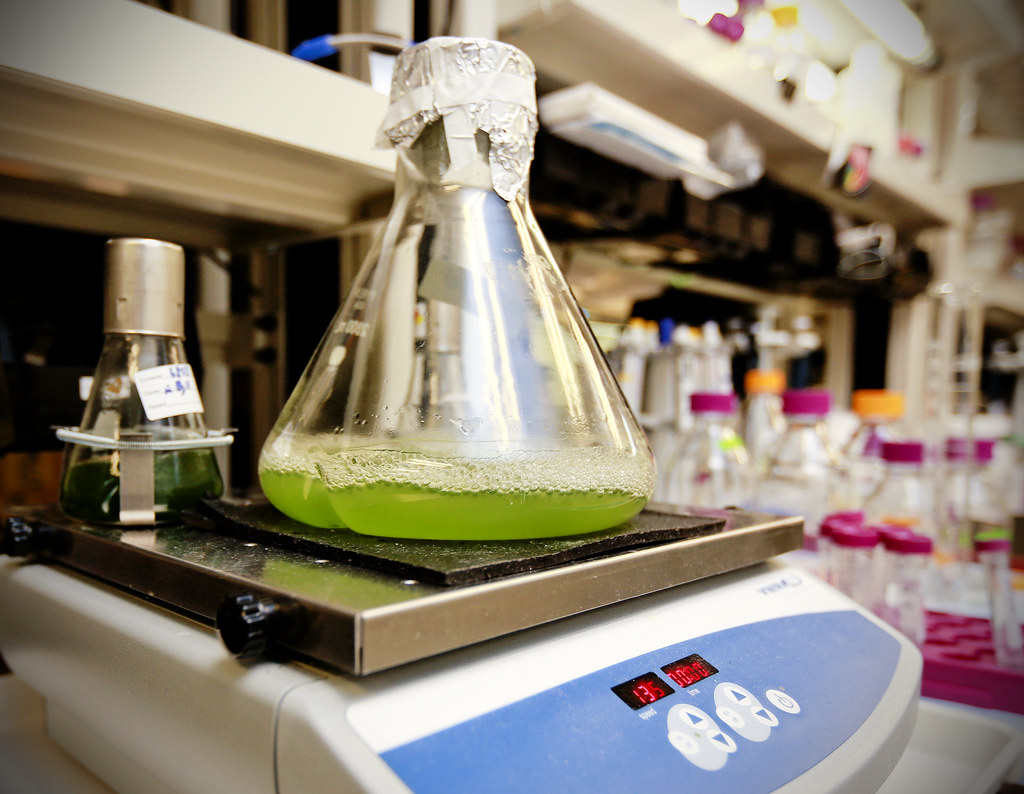Algae, a very promising and emerging renewable energy source, stands out for its high-yielding photosynthetic capability, offering a sustainable alternative to fossil fuels. Unlike traditional biofuels, algae can thrive in a variety of environments, making it a versatile choice for producing clean energy. However, its path to commercial viability as a biofuel is hindered by challenges such as relatively low biomass (organic material that can be used as a renewable energy source to produce heat, electricity, or fuel) yield and high harvesting costs. This situation demands creative solutions to maximize algae’s potential.
Artificial Intelligence (AI) is revolutionizing the field of algae biofuel production by enabling precise predictions of growth conditions that maximize yield and reduce costs. By leveraging AI models, researchers can optimize light penetration and density, critical factors for algae growth, ensuring continuous and efficient production. This technological innovation marks a significant advancement in biofuel cultivation, offering a path to overcome historical barriers to algae’s commercial scalability.
The groundbreaking work by Texas A&M AgriLife Research, led by Joshua Yuan, Ph.D., showcases the power of AI, setting new benchmarks for algae biofuel production. Achieving a world record of 43.3 grams per square meter per day in biomass productivity, the team’s approach combines semi-continuous algal cultivation (SAC) with aggregation-based sedimentation (ABS), driven by a patented AI model. This achievement not only surpasses previous productivity targets, but it also demonstrates the feasibility of algae as a sustainable biofuel source.
The integration of AI into algae biofuel production holds significant environmental and economic implications. Environmentally, it offers a pathway to reduce greenhouse gas emissions and dependency on fossil fuels, aligning with global climate change mitigation efforts. Economically, the research suggests algae biofuel can be produced at a competitive cost, potentially transforming the bioeconomy and fueling further innovation in renewable energy technologies. The ongoing and future research will focus on scaling these methods for industrial application, further reducing costs and enhancing sustainability.
Despite the promising advancements, skepticism remains regarding the scalability and economic viability of algae as a renewable fuel source. Critics point to past challenges in achieving cost-effective, large-scale production. However, the recent breakthroughs by Joshua Yuan and his team challenge these ideas. They demonstrate that with the right technological innovations, mainly AI, algae biofuel is capable of becoming a practical alternative to conventional fuels. By addressing these challenges head-on, breakthroughs in research open new avenues for greater adoption of sustainable energy solutions.
The integration of artificial intelligence into algae biofuel production represents a significant development in the quest for sustainable energy sources. This research paves the way for a future where renewable energy can significantly reduce our carbon footprint and dependence on fossil fuels. Utilizing sustainable resources, continuing research, investing, and supporting policies will be crucial in achieving the full potential of algae biofuel as a cornerstone of the global renewable energy mix.
Through the collective ingenuity of the human race, the future of our planet is starting to look brighter with each and every innovative notion. As we navigate the twilight of our age, the narrative of algae biofuel, energized by artificial intelligence, emerges as a beacon of hope and a manifestation of human creativity. The discoveries of Joshua Yuan and his team signal the dawn of a new era in renewable energy. They serve as a powerful call to action for embracing innovation and sustainability, propelling us towards a cleaner, brighter future.



































